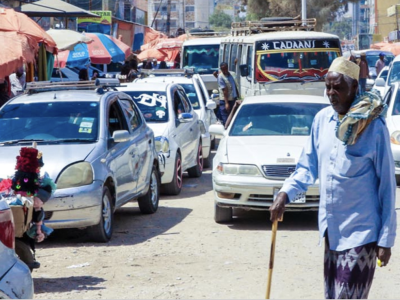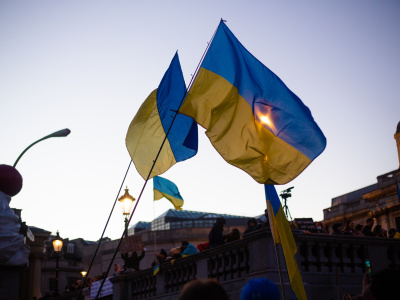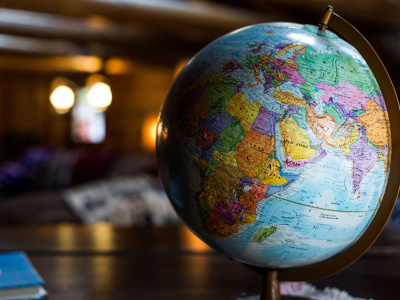
New hopes for Somalia: Reflections on the EU’s continued support in a fragile context
Yesterday’s adoption of the EU Council Conclusion on Somalia marks a new milestone in the long-term EU-Somalia relationship. It also marks a good moment to look back at the last 12 years of EU and international relations with this highly fragile and conflict-ridden country, to assess the extent to which this relationship, underpinned by immense investments, has contributed to Somalia’s state-building process and whether the EU has supported this process well, making the investments worthwhile.
The many attempts to assist Somalia
Yesterday, 26 June 2023, the EU Foreign Affairs Council (FAC) adopted new Council Conclusions on the EU’s support to Somalia. It complements the Somalia-EU Joint Operational Roadmap (JOR), launched on 2 May 2023, and the Somalia-EU Political Dialogue held on 6 March 2023. These initiatives mark a new momentum for EU-Somalia relationships, as they seek to create substantial change in a country which continues to grapple with serious internal governance problems, severe poverty, the violent extremism of Al-Shabaab and the effects of climate change. Drought and famine hit the country hard in 2010/2011, 2016/2017 and again in 2020/2021.
We have been here before. First in 2012/2013, following the conclusion of the Peacebuilding and Statebuilding Goals (PSGs) of the New Deal for Engagement in Fragile States in Busan (2011). For Somalia, it resulted in the Somali Compact (2013), which was basically a copy/paste of the highly ambitious PSGs to direct international support to the Somali development process. This route was heavily facilitated by the EU (A New Deal for Somalia Brussels, 2013) in close collaboration with the UN and other multilateral and bilateral partners of Somalia.
Then came the New Partnership for Somalia for Peace, Stability and Prosperity, the result of the Somalia London Conference (2017). It detailed how Somalia and the international community should work together to support the country’s National Development Plan and signalled hope that deep constitutional and governance reform would further progress after Mohamed Abdullahi Farmaajo became president in February 2017. The EU opened its delegation in Mogadishu’s international airport area in 2017 (i.e., the political section and the international cooperation section remain until today in Nairobi) and mobilised an additional €200 million in support of Somalia, of which €100 million were general budget support. The EU was the first international partner of Somalia to provide such support.
Hopes for real change unfortunately vaporised. Political relationships between the Farmaajo government and the international community came to a standstill as of 2020/2021 due to the government’s disregard for the provisional constitution and a continuously delayed electoral process. The EU, the UK and the World Bank coordinated closely with the International Monetary Fund in support of Somalia’s debt relief, which was linked to the successful conclusion of the elections.
Months of political crisis finally ended with the election of Hassan Sheikh Mohamud as president in May 2022, which cleared the path for a new period of Somalia’s engagement with the international community. The EU resumed its budget support which had been put on hold in December 2020 after lengthy deliberations between different EU actors and EU member states - a process reflecting the cumbersome political decision-making process of EU external action.

Very big investments but limited outcomes
As of 2014, EU support was framed by the very ambitious and strategic objectives of the EU’s National Indicative Programme (NIP) for Somalia (2014-2020), which was closely aligned with the objectives of the Somali Compact (2013), derived from the New Deal. The objectives of the NIP aimed to:
-
achieve a stable and federal Somalia through inclusive political processes;
-
establish unified, capable, accountable and rights-based Somali federal security institutions;
-
establish independent and accountable justice institutions;
-
revitalise and expand the Somali economy and
-
increase the delivery of equitable, affordable, and sustainable services to promote national peace and reconciliation.
Big sums of money were mobilised and spent to work towards these broad objectives. Between 2014 and 2021, the EU supported Somalia with € 1,6 billion (development and humanitarian assistance), which was 14% of the entire international support provided to Somalia, according to the OECD/DAC. Additionally, the EU supported Somalia with € 1,9 billion via the African Union for the former AMISOM and today’s ATMIS peace support operations and via regional funds, plus approximately € 900 million, which the EU and its member states spent for CSDP missions and operations since 2008. On top of these, EU member states spent € 2,8 billion for development and humanitarian assistance between 2014 and-2021, making the Union the biggest supporter of Somalia.
Somalia has clearly progressed in these 12 years when it comes to economic development, state capacity, national leadership and security in selected areas. But the country is still far away from being able to function as a state fully in control of its own affairs, including its territory. So was the EU’s approach appropriate to address severe fragility and protracted crisis? And were the immense investments justified, given the limited outcomes one can observe today?
The strategic evaluation by ECDPM and Particip of the EU’s support to Somalia for the years 2014 to 2021 concludes that return on the EU’s investment has been considerably lower if one considers the ambitions laid out in the NIP (2014-2020). The EU contributed to enhanced state capacity at central level, helped promote macro-level reforms and was instrumental in improving selected areas in relation to security and at the local level, realised mainly via civil society organisations. But this support did not help trigger systemic change, despite the close collaboration with multiple international partners and the use of an increasingly functioning EU-integrated approach.
This comparatively limited outcome, despite the big investments, can be attributed to the enormous complexity of the context, marred by political and clan conflicts, unsolved constitutional and other governance issues, the conflict with Al-Shabaab and Islamic State in the northern part of the country.
This, on top of persisting capacity challenges within the Federal Government and the Federal Member States, widespread poverty and the humanitarian crises caused by a combination of natural and man-made disasters, compounded by the effects of climate change.
To these multiple crises, one needs to add the effects of COVID-19, which affected aid delivery and the Russian invasion of Ukraine, which resulted in increased food prices.
So, the level of ambition and expected outcomes were clearly not realistic.

Has the ‘New Deal’s approach’ been justified, and was money wisely invested?
Today’s JOR still reflects the ambitions of the New Deal. Its priorities and objectives are “to ensure progress on state-building … leading to the finalisation of the constitution”; “Somalia to assume responsibility for its own security underpinned by a robust legal and constitutional framework” and “to end Somalia’s financial isolation, increase domestic resource mobilisation and assist the Federal Government and the Federal Member States of Somalia to ensure service delivery for its citizens.” Contrary to the New Deal, however, there is no reference to civil society in this newer broad framing.
Given the limited results, is it possible to think of possible alternatives to the New Deal that might have worked as a better framework to counter fragility and crises? ECDPM and Particip conclude that, basically, there are no fundamental alternatives for countering deeply rooted problems to the ones suggested in the New Deal when it comes to dealing with extreme fragility and protracted crises, even if there could have been space for some country-specific modifications. The broad and comprehensive support framework used for Somalia remains valid.
The Somali case can offer useful learnings for the EU’s support to other fragile and conflict-affected contexts and to understand how support processes in difficult environments can be gradually directed towards, at least, somewhat better results.
2017 was a decisive year. At that time, the EU - while closely aligned with the international community’s actions in Somalia - revised its approach to a more integrated engagement in Somalia. Different EU services started to work more closely together. It was built on internal learning and a gradual update of insights originating from external research. Such learning needs to be harnessed as an ongoing process and allows the integration of new research, such as the recently completed study by Chatham House and NYU-CIC on how donors can stay and deliver in fragile and conflict-affected states. The JOR displays elements of this ongoing learning as much as yesterday’s adopted EU Council Conclusions on Somalia.
Another important lesson is the one related to money invested vis à vis actual results and whether public support can be maintained in view of other costly global and regional challenges. Considering the central place of Somalia in the geopolitically relevant Horn of Africa and the need to promote regional stability – which is also in the wider interest of the EU and EU member states considering past maritime piracy problems around the Horn of Africa – ECDPM and Particip conclude that Somalia needs to remain a priority area of international development cooperation and, to the extent possible, receive economic investments.
The EU cannot do this on its own. To show a clear European footprint in this region, it needs to further refine its collaboration with EU member states and solicit their enhanced support.
It is only through a more unified response that the Union can remain at the strategic forefront of policy and political dialogue with Somali and regional authorities, in concert with other key international partners.
The views are those of the author and not necessarily those of ECDPM. With thanks to Maëlle Salzinger for the useful comments provided.
Find more information about ECDPM's work to evaluate the EU’s international development cooperation with Somalia.




